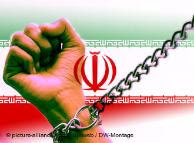| ||
On the afternoon of 13 December 2015, residents of the Palestinian village of al-Janiyah clashed with the Israeli military at the eastern entrance to the village. The military had sealed off this entrance several years ago with concrete blocks, as it lies close to the road leading to the settlement of Talmon. As a result, the villagers have to travel by another route that adds five kilometers to their journey and they cannot reach their farmland east of the village by car. As clashes between Palestinians and the military intensified throughout the West Bank in recent weeks, confrontations developed in this area as well.
Yazan Mazlum in the hospital. Photo: Iyad Hadad, B'Tselem,13 Dec. 2015
B’Tselem’s investigation found that during the clashes on 13 December, Palestinians threw stones at soldiers and the latter responded by firing tear-gas canisters, rubber-coated metal bullets and live ammunition. The confrontation spread to the village center, about 500 meters from the eastern entrance. At around 5:00 P.M. soldiers fired tear-gas canisters in the village center. Several of these penetrated a three-story residential building that is home to three families. About twenty people live in the building, including some children and elderly individuals.
Yazan Mazlum and Yusef Shabayeh, both 17 years old, went into the building to help the inhabitants get out. The next day, Shabayeh related what happened to B’Tselem field researcher Iyad Hadad:
I heard that soldiers had fired tear gas near Abu Hani’s house in the village center, so I went there with a few other guys to help them. When we went in, some of the residents had already gone up to the roof on account of the tear gas. We helped take five kids to another apartment in the building and helped an old man up to the roof. Five or ten minutes after we got there, a large group of soldiers rushed into the building. Three of them came into the room we were in and then another soldier came in, I think he was the commander. He was masked. He pointed at me and at Yazan and told the soldiers to arrest us. The soldiers started dragging me by the shoulders. When I resisted they started beating me on the head, shoulders and legs with their rifles. I saw other soldiers beating Yazan. They tied our hands behind our backs with plastic cable ties and pulled them real tight. I told one of the soldiers that my hands hurt, but he kept on beating me. The soldiers dragged us down the stairs and my head banged against the walls.When we got downstairs, they started asking us questions, continuing to beat us and swear at us. After a minute or two, they led us to the eastern entrance to the village, about 500 meters away. When we got there, one of the soldiers said he was the commander and said we had thrown stones. He kicked me in the chest and I felt it was hard to breathe. They sat Yazan and me down together and started accusing us again of throwing stones, all the while continuing to beat us. We kept on denying the allegations and they let us ago after a few minutes.We were taken in a Red Crescent ambulance to the Palestine Medical Center in Ramallah, where we were examined and x-rayed. The doctors found that my shoulder was dislocated and I also had bruises on my chest, head and legs, as well as marks on my hands from the plastic cable ties. I was treated and released told to continue with medical follow-up. This morning, I missed a test at school. I didn’t go because I can hardly move my toes. I’m in my last year of high school and I’m afraid this will harm my studies.
Yazan Mazlum and Yusef Shabayeh were not summoned for official questioning and no legal proceedings were instigated against them.
The soldiers’ alleged violence against the two teens is yet one more instance in a series of incidents documented by B’Tselem throughout the West Bank, in which Israeli security forces used violence against youths, arguing that they had thrown stones or knew of others involved in such activity. In other cases, security forces harassed families as part of general punishment in the village for stone-throwing. The fact that such incidents are still occurring and have not been made to stop, although all the responsible parties are well aware of the phenomenon, raises concern that the military might see such conduct as a legitimate means of dealing with stone-throwing. However, use of violence as described above is prohibited under any circumstance.






